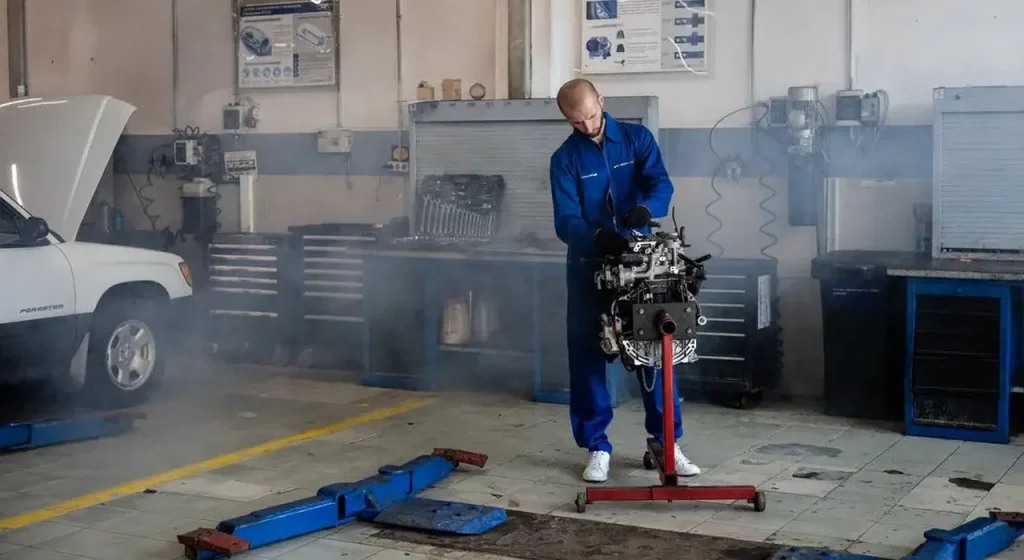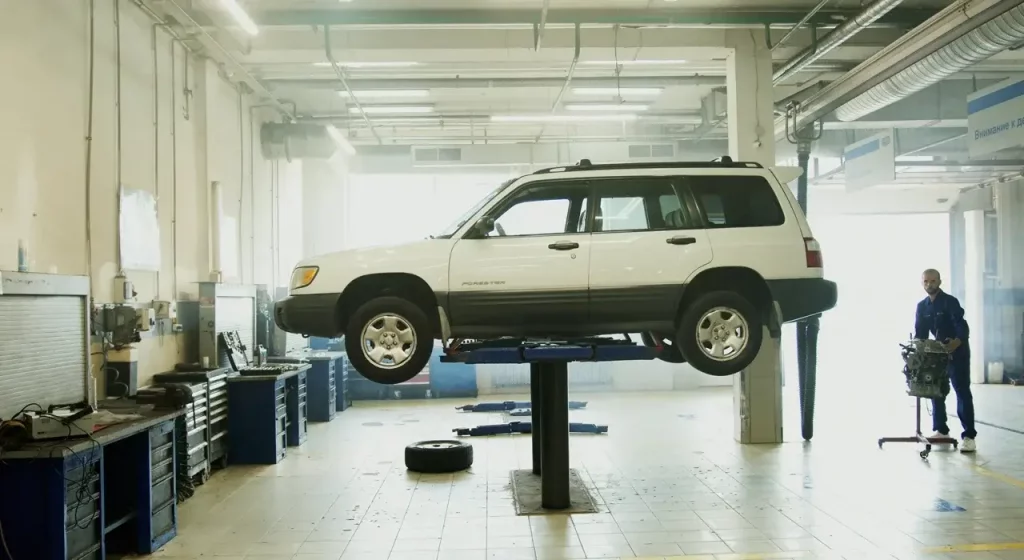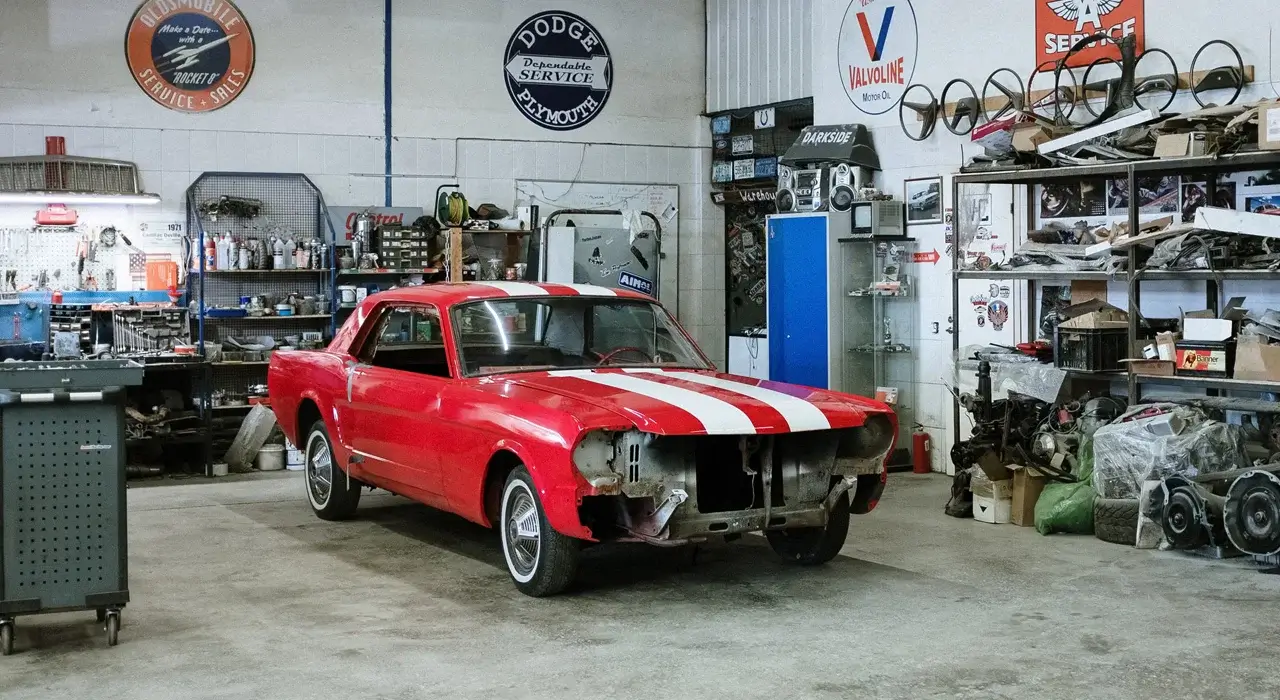There are many skilled automotive mechanics. Most aim to own a car repair shop at some point in their career. Still, setting up a functioning and profitable shop requires more than just mechanical skills. There are essential steps to starting a car repair shop that you must follow.
You’ll have to stock your shop with the necessary repair equipment. Are you planning to open an auto repair shop? Or perhaps you have initiated one but you’re still in the process of stocking up. You most likely want to fill your shop with the best and most useful equipment.
Our article will identify the 7 top equipment needs for opening a car repair shop. But, first, let’s find out how you can benefit from starting the automotive repair business.
How Can You Benefit from Starting a Car Repair Shop?
Working as an employee in a car repair shop comes with many limitations. Despite how much you earn from the job, you only get your set hourly wage. This is discouraging for many people.
Suggestion: 9 Best Portable Car Battery Jump Starter with Air Compressor
Opening a mechanic shop could offer you the best opportunity to grow your career. Still, before you open the garage, you’ll have to plan well. Once you choose to open your car repair shop, you can benefit from:
- Setting prices
- Choosing your clients
- Taking more control of the business activities
Presently, auto repair shop owners earn good profits from vehicle repairs. So, there’s no better time to start the venture than now.
According to auto repair trends and statistics, the industry repairs and maintains passenger vehicles and light trucks. Its annual turnover is estimated at $880 billion.
Many drivers own cars that are more than 10 years old, necessitating more car repairs. So, starting a mechanic shop could be a way to earn more. Once your business is well-established, you can hire mechanics to perform car repairs and maintenance services. You can offer such services to individual customers or companies.
So, you could benefit from business diversification. Your garage could also install items like alarm systems and radios.
In short, there are many ways in which you can specialize in your auto repair shop, scaling the heights to success.
What Are the 7 Top Equipment Needs for Opening a Car Repair Shop?
Let’s investigate what equipment you will need to get your auto repair shop up and going.
1. Heater Elements

A heater core is a tiny radiator positioned under the vehicle’s dashboard. It consists of brass tubing or conductive aluminum with cooling fins that increase the surface area. Hot coolant that channels via the heater core release heat before returning to the engine cooling circuit.
The flexible heater element matters most when it comes to cleaning automotive parts. Usually, steam pressure systems require reliable and maintenance-free heating components. They increase the temperature to levels that can sanitize every component to remove milling and grind residues.
As you plan to open an auto repair shop, you need to know more about the hi-heat industries. Here, you’ll discover some of the flexible heating elements you need to set up the repair shop. Hi-heat designs such as heaters using distributed wattages.
The hi-heat industries also eliminate the edge loss compensation. This results in a superior heat transfer, and you also attain remarkably uniform heat output. This leads to extended life and a faster warm-up cycle.
Some of these flexible heater elements include:
- Kapton heaters – offering immediate, close-heat transfer. They need a thin heating element, the solution is found by way of the polyimide Kapton heater
- Polyester heaters are moisture-resistant heaters that are highly economical and used to heat extensive areas
- Silicone rubber heaters are flexible heater elements that allow you to apply heat exactly where it’s needed.
Popular For You: 9 Best Air Compressor For Painting Cars At Home
Other hi heat industries’ flexible heater elements include:
- Industrial silicone heaters
- Custom-designed flexible heaters. They include custom-designed silicone rubber heaters and custom-designed silicone heating mats
- Flexible rubber heaters
- Flexible heaters silicone rubber
- Film heaters
Infrared heating systems are appropriate for auto repair shops with open-door service areas. As cars go in and out throughout the day, heat is also lost through the service doors.
Infrared heating will radiate heat to warm effectively:
- Surfaces
- Cars
- Machinery
- Tools
- People
- Floors
A tube heater helps retain heat from the ground, thus covering for lost heat whenever the service door is used. Constant heat can enhance a repair shop’s productivity. It helps maintain the appropriate temperature for tools and vehicles and it also keeps employees happy.
Suggestion: 8 Best Lift Kits For Nissan Frontier
2. Vehicle Lift

A car repair shop requires a vehicle lift. The mechanic needs to reach beneath the vehicle to perform diagnostics. Your shop needs a car lift that can raise a vehicle to the needed height, allowing you to conduct the essential service effectively.
You’ll have to match your needs with the different lift models and capacities. The characteristics you’ll have to consider include:
- Safety features
- Accessories
- 2-post versus 4-post construction
- Power requirements
Vehicle lifts are essential for your auto repair shop. They’re developed to last for many years so buy a top-quality lift and ensure the presence of essential parts and services.
1. Jack Stand and Pole Jacks
When you start an auto repair shop, you’ll need a jack stand. It elevates vehicles temporarily and is used routinely.
Go for a high-quality, increased-capacity, and strong jack stand. Once elevated, the jack supports the vehicle. Pole jacks are also necessary. They often support the axles and other components used in raised vehicles.
2. Oil Drain and Oil Caddy
You will need an oil caddy with enough capacity to carry the highest fluid volume for your oil change and transmission fluid. As you work with raised vehicles, a standing oil caddy that can reach the elevated vehicle will make your work easier and quicker.
3. Engine Hoist or Crane
Engine hoists are essential for any auto repair shop or garage. An engine hoist will function differently in your shop depending on whether you’re rebuilding, repairing, or replacing an engine.
Ensure you go for one with the capacity to handle the largest engine. The machine should raise and lower heavy-duty items like engines inside and outside the allocated space.
4. Air Compressor
An air compressor is vital for the operation of different tools in a car repair shop. The compressor facilitates the operation of gadgets like pneumatic hand tools and some auto lifts.
Get the highest capacity air compressor that you can afford. This guarantees you have the equipment you require for powering your auto shop repair needs.
5. Battery Charger and Jump Starter
Many jobs in the auto repair shop will involve dead batteries or charging issues. Your shop will need an excellent battery charger and jumper to conduct these services.
Car battery chargers are different from jump starters. A battery charger is the only option for fully charging a car battery. It is used to fill up a car’s battery when it has no more power. Jumpstarters add adequate power to start up a car.
Key Takeaways
When you are well-skilled and up to higher auto repair tasks, it may be time to start your own auto repair shop. This could be when you have learned to recruit, hire, and delegate work.
Now, it’s time to sharpen your skills even further. As an auto repair shop owner, you can gain more experience and earn better money.
To start a car repair shop, you’ll need the basic equipment to help solve your customer needs.







